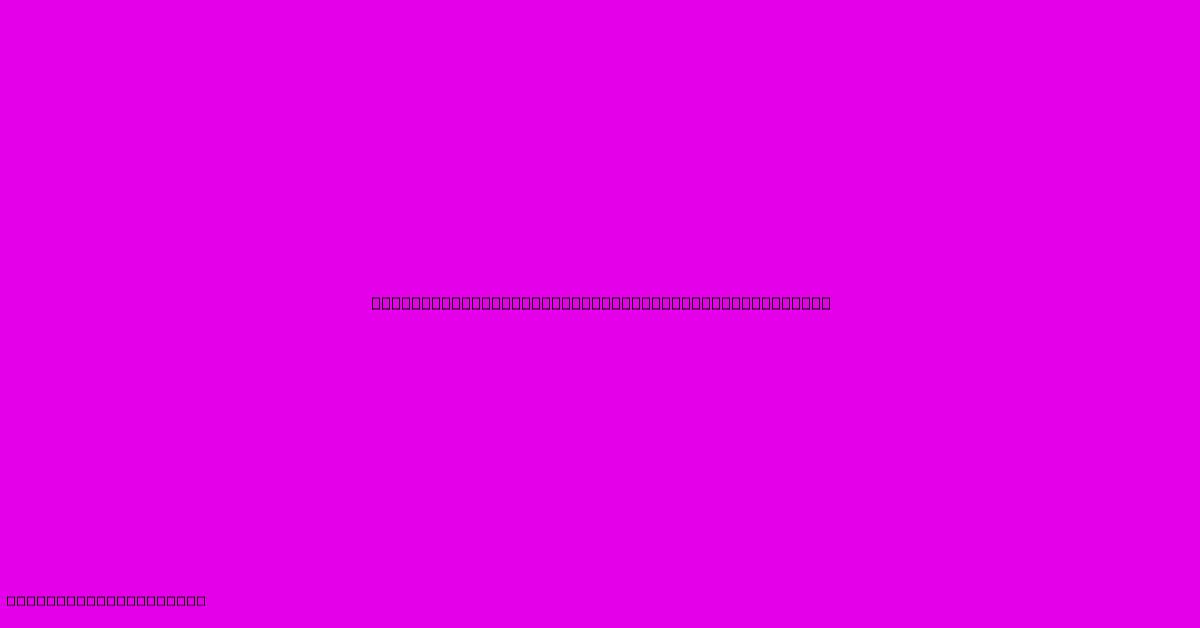AI Law: McCartney Warns Of Artist Exploitation

Table of Contents
AI Law: McCartney Warns of Artist Exploitation – A Looming Legal Battle
Sir Paul McCartney's recent warnings about the potential for AI to exploit artists highlight a critical and rapidly evolving legal landscape. The use of artificial intelligence in music creation and reproduction raises complex questions of copyright, ownership, and the very definition of artistic creation. This article delves into the key legal challenges presented by AI and explores the potential solutions needed to protect artists' rights in this new technological era.
The McCartney Concern: A Symptom of a Broader Issue
McCartney's concerns aren't unique. Many artists fear that AI could be used to create "deepfakes" – convincingly realistic imitations of their voices and styles – without their permission or compensation. This raises significant copyright infringement issues, impacting not only established artists like McCartney, but also aspiring musicians whose unique styles could be easily replicated and exploited. The ease with which AI can mimic artistic styles threatens the very foundation of creative ownership.
Copyright in the Age of AI: Existing Frameworks and Their Shortcomings
Current copyright law struggles to adapt to the complexities of AI-generated content. Traditional copyright protects works of authorship created by humans. But when AI creates a song resembling a specific artist's style, who holds the copyright? The programmer? The AI itself (which lacks legal personhood)? Or perhaps, most concerningly, no one, leaving the artist's work vulnerable to exploitation. Existing frameworks are ill-equipped to address these nuances, requiring urgent legislative intervention.
Key Legal Challenges Posed by AI in Music:
- Ownership of AI-generated music: Determining the copyright holder is a fundamental challenge. Current legal systems are not designed to handle intellectual property generated by algorithms.
- Infringement of existing copyrights: AI systems trained on vast datasets of existing music risk unintentionally replicating copyrighted material, leading to claims of infringement. This is particularly problematic with "style transfer" AI that mimics the style of specific artists.
- Moral rights violations: Even if copyright infringement isn't directly established, the unauthorized use of an artist's style could violate their moral rights, including the right to be attributed as the creator and the right to object to distortions of their work.
- Contractual ambiguities: Existing artist contracts rarely address the use of AI in music creation, creating significant ambiguity about rights and liabilities.
The Need for New Legislation and International Cooperation:
Addressing these challenges requires a multi-faceted approach:
- Clarifying copyright ownership: Legislation is needed to determine clear ownership guidelines for AI-generated content, potentially involving a system of shared ownership between the programmer and the artist whose style is used.
- Strengthening copyright protection: Existing copyright laws need to be strengthened to address the specific ways AI can infringe on artists' rights, including the unauthorized use of their style and voice.
- Developing technological solutions: Watermark technologies and other methods of identifying AI-generated content could help track and prevent unauthorized use.
- International cooperation: The global nature of AI necessitates international cooperation to establish consistent legal frameworks protecting artists' rights worldwide.
Protecting Artists: A Call for Action
The concerns raised by Sir Paul McCartney serve as a critical wake-up call. The rapid advancement of AI in music production demands urgent legal action to prevent the exploitation of artists. Failing to act decisively could lead to a future where artists struggle to protect their creative work and livelihood from the unchecked power of artificial intelligence. The time for robust legal frameworks and international cooperation is now. Only through proactive measures can we ensure a future where technology empowers artists rather than silencing them.
Keywords: AI law, AI music, copyright infringement, artist exploitation, Paul McCartney, AI deepfakes, AI generated music, legal challenges, copyright ownership, moral rights, legislation, international cooperation, music industry, intellectual property, AI and creativity.

Thank you for visiting our website wich cover about AI Law: McCartney Warns Of Artist Exploitation. We hope the information provided has been useful to you. Feel free to contact us if you have any questions or need further assistance. See you next time and dont miss to bookmark.
Featured Posts
-
Tan Bathroom Tile
Jan 26, 2025
-
Tile Or Lvp In Bathroom
Jan 26, 2025
-
Rustic Mantels For Fireplaces
Jan 26, 2025
-
Parkers Mums Emotional Support For Kelsey
Jan 26, 2025
-
La Furniture Van Nuys
Jan 26, 2025